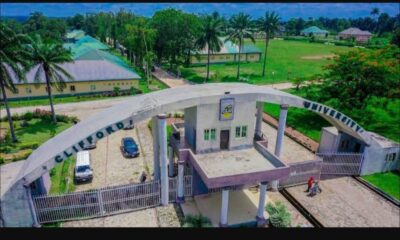EDITORIAL
Tackling gridlock with intra-city train services
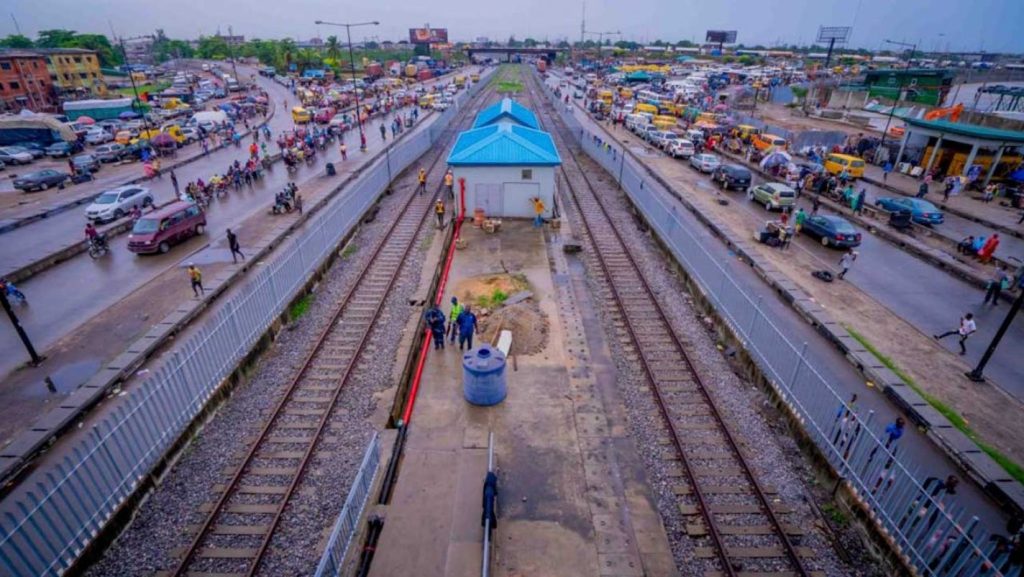
The economic and social costs of traffic congestion in Nigerian cities are staggering. According to estimates, Lagos alone loses billions of naira annually due to lost productivity, wasted fuel, and delays in the movement of goods and services.
In Nigeria’s bustling cities—Lagos, Abuja, and Port Harcourt—traffic jams have become a daily struggle. Millions of Nigerians lose precious hours each day in gridlock, a challenge that not only drains their time but also takes a heavy toll on their health, productivity, and well-being.
These gridlocks are a result of overpopulation and the increasing number of vehicles on roads that were never built to handle such heavy traffic. The existing transportation systems in these cities are inefficient, unsustainable, and ill-prepared to meet the needs of a rapidly expanding urban population.
By drawing inspiration from more developed countries, Nigeria can take bold steps to address this crisis, with the introduction of intra-city train services serving as a key solution.
Cost of Gridlock
The economic and social costs of traffic congestion in Nigerian cities are staggering. According to estimates, Lagos alone loses billions of naira annually due to lost productivity, wasted fuel, and delays in the movement of goods and services.
Beyond the economic implications, the psychological and physical toll on commuters cannot be overstated. Spending hours in bumper-to-bumper traffic leads to elevated stress levels, reduced family and leisure time, and an increase in health issues such as respiratory problems caused by prolonged exposure to vehicle emissions.
Furthermore, the environmental consequences are dire. Vehicular emissions are a significant contributor to urban air pollution, and with more cars flooding the roads daily, the situation is only set to worsen.
Intra-city train services, if implemented effectively, could drastically reduce the number of cars on the road and provide a cleaner, more sustainable alternative to the current chaos.
Developed Countries
Governments in developed countries have since embraced the importance of efficient public transportation systems to enhance urban mobility. For example, from the iconic Underground in London to New York City’s extensive subway network, intra-city train services are integral to urban mobility in these cities.
These systems not only reduce traffic congestion but also offer affordable, reliable, and fast transportation for millions of commuters daily.
Nigeria can take a cue from these models. Though establishing such systems requires significant upfront investment, the long-term benefits—like reducing traffic congestion, cutting travel times, and boosting economic growth through improved mobility—are well worth the cost.
Plus, modern rail systems powered by electricity or renewable energy sources would significantly reduce greenhouse gas emissions, contributing to Nigeria’s broader environmental goals.
Challenges
While there may be challenges in implementing intra-city train services in Nigeria, such as infrastructure complexity and financial constraints, these obstacles can be overcome through public-private partnerships (PPPs) and strong political will, as demonstrated by the Lagos Blue Line project.
By utilizing technology, local expertise, and international partnerships, Nigeria can develop phased train networks that prioritize high-demand routes, integrating them with existing transport systems for seamless connectivity and wider adoption.
Benefits
The benefits of intra-city train services extend beyond alleviating traffic congestion. Such systems would boost productivity, as this would mean less time spent in traffic and more time for work, education, and leisure.
An efficient intra-city train service would help create jobs. Building and maintaining train systems would generate employment opportunities across multiple sectors, from construction to operations and maintenance.
It will also enhance public health as reduced vehicular emissions would improve air quality, leading to fewer pollution-related illnesses. This would in turn translate to economic growth, attracting investment, facilitating trade, and driving urban development.
Nigeria stands at a crossroads. The traffic crisis in its major cities is a ticking time bomb that demands immediate and decisive action. Intra-city train services represent a forward-thinking solution that aligns with global best practices and offers numerous economic, environmental, and social benefits.
While the challenges are significant, the rewards are even greater. By investing in modern rail systems, Nigeria can transform its cities into hubs of efficiency, sustainability, and opportunity. It is time to move beyond the gridlock and chart a new course for urban mobility.
FRCN
Discover more from Asiwaju Media
Subscribe to get the latest posts sent to your email.
-

 EDITORIAL5 days ago
EDITORIAL5 days agoHow Chinedu Ogah Perfected the Art of Political Wayo
-

 NEWS7 days ago
NEWS7 days ago2025 C-SAGAS Arts and Sciences Competition Officially Flagged Off in Ebonyi State
-

 ENTERTAINMENT7 days ago
ENTERTAINMENT7 days agoAngela Okorie Appears To Shade Destiny Etiko After Wedding Drama
-

 ENTERTAINMENT7 days ago
ENTERTAINMENT7 days agoCarter Efe Slams Portable Over ₦10 Million TikTok Appearance Fee Demand
-

 JOBS/SCHOLARSHIPS5 days ago
JOBS/SCHOLARSHIPS5 days agoCall For Applications: Llama Impact Accelerator Program 2025 for African startups (Equity-free funding of $25,000)
-
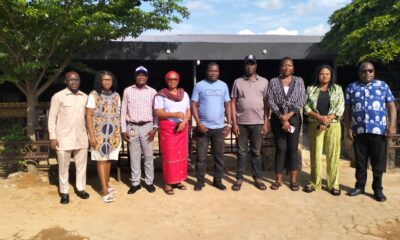
 NEWS4 days ago
NEWS4 days agoC-SAGAS Charity Foundation Hosts Key Stakeholders for Strategic Partnerships
-

 ENTERTAINMENT5 days ago
ENTERTAINMENT5 days agoNasboi Survives Car Accident During Nationwide Journey to Secure Davido Feature
-

 ENTERTAINMENT6 days ago
ENTERTAINMENT6 days agoLinc Edochie Reportedly Ties the Knot in Private Ceremony with U.S.-Based Partner
-
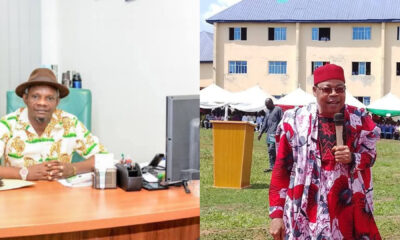
 POLITICS4 days ago
POLITICS4 days ago‘I Rigged Senatorial Poll Against Emmanuel Onwe’ – Rep Ogah
-

 ENTERTAINMENT7 days ago
ENTERTAINMENT7 days agoBurna Boy Rejoices After Successfully Flying a Helicopter
-

 NEWS5 days ago
NEWS5 days agoI Made Wike Chief Of Staff So I Could Monitor Him Closely – Rotimi Amaechi
-
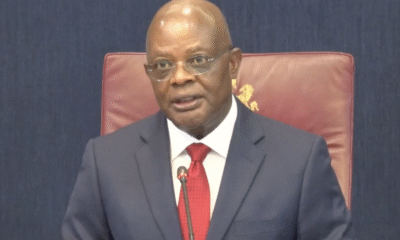
 NEWS5 days ago
NEWS5 days agoRivers State Administrator Appoints 11 New Permanent Secretaries









